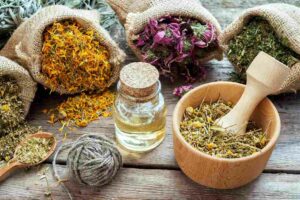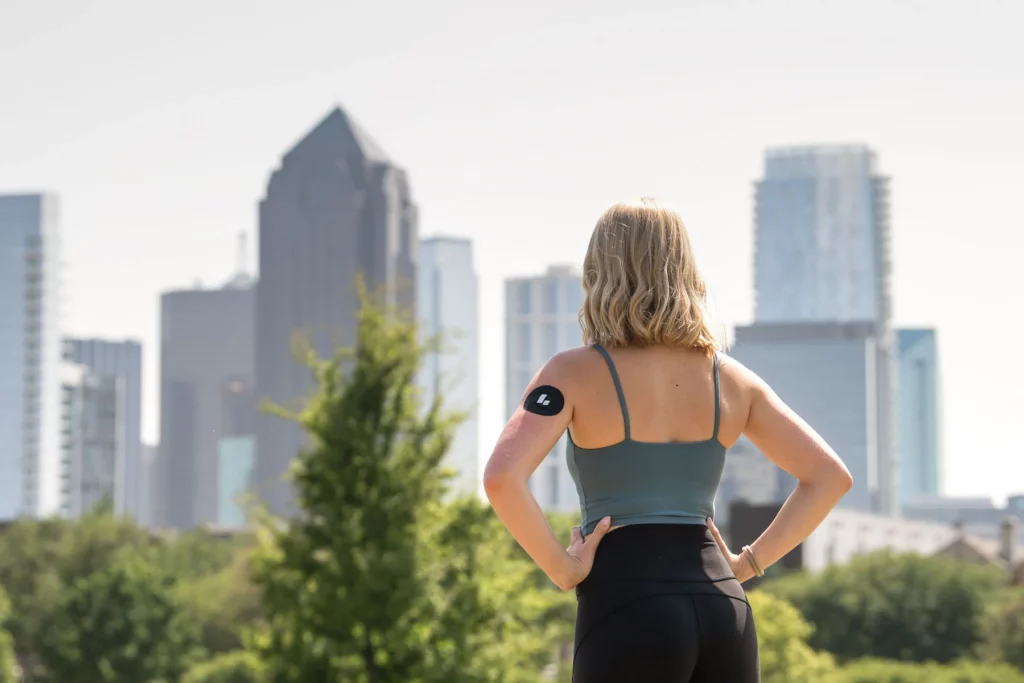Insulin resistance has emerged as a significant challenge, affecting millions of people globally. This condition, often a precursor to type 2 diabetes, is characterized by the body’s diminished ability to respond to insulin, a hormone crucial for regulating blood sugar levels. With the right strategies, individuals can effectively combat and even reverse this condition, paving the way for improved health and well-being. In this comprehensive guide, we will delve into insulin resistance cures, exploring several options that can help reverse it.
Contents
How Do I Know If I’m Insulin-Resistant?
 Recognizing insulin resistance early is crucial for effective management and prevention of related health issues. Here are key signs, symptoms, and methods to determine if you might be experiencing insulin resistance:
Recognizing insulin resistance early is crucial for effective management and prevention of related health issues. Here are key signs, symptoms, and methods to determine if you might be experiencing insulin resistance:
- High Blood Sugar Levels: One of the primary indicators of insulin resistance is elevated blood sugar levels. If your fasting blood glucose levels are consistently higher than normal (but not yet in the diabetic range), it could be a sign of insulin resistance.
- Increased Waist Circumference: A high waist circumference or an apple-shaped body, where excess fat is stored around the abdomen, is often associated with insulin resistance. This type of fat distribution is more closely linked to insulin resistance than overall obesity.
- Skin Changes: Dark, velvety patches of skin, known as acanthosis nigricans, often in areas like the neck, groin, and armpits, can be a sign of insulin resistance.
- Fatigue: Feeling unusually tired or experiencing energy crashes, particularly after meals, can be a symptom of insulin resistance, as the body struggles to effectively use glucose for energy.
- High Blood Pressure and Cholesterol Levels: Insulin resistance is often associated with other health conditions like hypertension (high blood pressure) and dyslipidemia (abnormal cholesterol levels). Particularly high triglycerides and low HDL (good) cholesterol.
- Cravings for Carbohydrates or Sugars: Experiencing intense cravings for sugary or carbohydrate-rich foods can be a symptom. As the body’s cells are not receiving enough glucose.
- Hunger After Meals: Feeling hungry soon after eating can occur because glucose is not efficiently entering the cells, leading to a lack of satiety despite adequate food intake.
- Polycystic Ovary Syndrome (PCOS): Women with PCOS often have insulin resistance. Symptoms of PCOS include irregular menstrual cycles, excessive hair growth, acne, and fertility issues.
To confirm insulin resistance, medical professionals typically conduct tests such as fasting blood glucose, fasting insulin, HbA1c, and oral glucose tolerance tests. These tests assess how well your body processes glucose and how sensitive it is to insulin.
Can Insulin Resistance Be Cured Naturally?
Insulin resistance is a complex condition where the body’s cells become less responsive to the hormone insulin, leading to elevated blood sugar levels. While the term “cure” may be ambitious, it is indeed possible to significantly improve insulin sensitivity and manage insulin resistance effectively through natural means. Lifestyle modifications are the cornerstones of managing and potentially reversing insulin resistance.
Even a modest weight reduction can have a substantial impact. Additionally, some natural supplements have been suggested to improve insulin sensitivity, although these should be used under the guidance of a healthcare provider. While natural interventions can be highly effective, they are not a one-size-fits-all solution. Hence, individuals with insulin resistance should work closely with healthcare professionals to tailor a plan that best suits their needs.
What Is The Fastest Way To Reverse Insulin Resistance?
 Reversing insulin resistance swiftly and effectively primarily involves adopting a comprehensive lifestyle approach. The key elements in this strategy include dietary changes, increased physical activity, and maintaining a healthy weight.
Reversing insulin resistance swiftly and effectively primarily involves adopting a comprehensive lifestyle approach. The key elements in this strategy include dietary changes, increased physical activity, and maintaining a healthy weight.
Dietary Changes
One of the fastest ways to impact insulin sensitivity is through diet. Adopting a diet rich in whole, unprocessed foods can make a significant difference. This means focusing on vegetables, fruits, lean proteins, and whole grains while reducing the intake of sugars, refined carbohydrates, and unhealthy fats. Diets like the Mediterranean diet, low-carbohydrate diets, or diets with a low glycemic index are particularly effective. Also, incorporating foods with high fiber content and those rich in omega-3 fatty acids can enhance insulin sensitivity.
Increasing Physical Activity
Regular exercise is another crucial component. Both aerobic exercises (like walking, running, swimming, or cycling) and resistance training (like weight lifting) are beneficial. Exercise helps muscles use blood sugar more effectively. This reduces the burden on insulin. Even a moderate amount of exercise, when done consistently, can produce noticeable improvements in a relatively short time.
In addition to these, maintaining a healthy weight or losing excess weight can also accelerate the reversal of insulin resistance. Even a modest weight loss of 5-10% of body weight can significantly improve insulin sensitivity. It’s important to note that these lifestyle changes not only help in reversing insulin resistance but also play a vital role in maintaining overall health and preventing a wide range of chronic diseases.
10 Best Natural Insulin Resistance Cures
Apart from dietary changes and physical activity, several other natural insulin resistance cures can help in managing and potentially reversing:
Adequate Sleep
Lack of sleep or poor-quality sleep can lead to hormonal imbalances that affect insulin. The body’s ability to regulate blood sugar is compromised when it doesn’t get enough rest, leading to increased insulin resistance. Consistent, quality sleep helps regulate the stress hormone cortisol, which can negatively impact insulin sensitivity when levels are too high. Aim for 7-9 hours of restful sleep per night, and try to keep a consistent sleep schedule. Practices like avoiding screen time before bed, ensuring a dark and quiet sleeping environment, and establishing a relaxing bedtime routine can aid in improving sleep quality.
Stress Management
High levels of stress can lead to the release of hormones such as cortisol and adrenaline, which can make the body less sensitive to insulin. Managing stress through mindfulness techniques, meditation, yoga, or deep breathing exercises can be highly effective. Regular practice of these activities can lower stress hormone levels, thus improving insulin sensitivity. Additionally, engaging in activities that you find relaxing and enjoyable. Such as hobbies or spending time in nature, can also contribute to reduced stress levels.
Hydration
Proper hydration is key for metabolic processes and can influence insulin sensitivity. Water helps in maintaining a balance of blood sugar levels. Drinking adequate amounts of water can help the kidneys flush out excess blood sugar through urine. Unlike sugary beverages, which can spike blood sugar levels and contribute to insulin resistance, water provides a zero-calorie, zero-sugar option to stay hydrated.
Limiting Alcohol and Quitting Smoking
Alcohol can affect liver and pancreas functions, which are crucial for insulin regulation. Drinking in moderation or abstaining from alcohol can help in managing insulin sensitivity. Smoking is a risk factor for insulin resistance and diabetes. It impairs the body’s ability to use insulin. Quitting smoking can lead to significant improvements in insulin sensitivity over time.
Natural Supplements
Supplements like magnesium, chromium, berberine, and cinnamon have been linked to improved insulin sensitivity. Magnesium plays a role in glucose control and insulin metabolism. Chromium is thought to enhance the action of insulin. Berberine, found in several plants, is known for its potential to lower blood sugar levels and improve insulin response. Cinnamon has been studied for its potential effects on blood sugar and insulin levels.
Herbal Remedies
 Herbs like fenugreek, ginger, and turmeric may aid in improving insulin sensitivity. Fenugreek seeds are high in soluble fiber, which can help manage blood sugar. Ginger has anti-inflammatory properties and may help lower blood sugar levels. Turmeric, and its active component curcumin, have been studied for its potential to reduce insulin resistance due to its anti-inflammatory and antioxidant properties. As with supplements, it’s important to consult with a healthcare provider before using herbal remedies.
Herbs like fenugreek, ginger, and turmeric may aid in improving insulin sensitivity. Fenugreek seeds are high in soluble fiber, which can help manage blood sugar. Ginger has anti-inflammatory properties and may help lower blood sugar levels. Turmeric, and its active component curcumin, have been studied for its potential to reduce insulin resistance due to its anti-inflammatory and antioxidant properties. As with supplements, it’s important to consult with a healthcare provider before using herbal remedies.
While these natural methods can be effective, it’s important to approach insulin resistance cures with a holistic perspective, combining various strategies for the best outcome. Moreover, individual responses can vary. So it’s beneficial to tailor these approaches to your specific needs and circumstances, ideally under the guidance of a healthcare professional.
Conclusion
In conclusion, insulin resistance cures are a crucial step towards maintaining overall health and preventing further complications like type 2 diabetes. Simple yet effective lifestyle changes such as eating a balanced diet, engaging in regular exercise, getting enough sleep, managing stress, and avoiding harmful habits like excessive alcohol consumption and smoking can make a significant difference. Additionally, staying hydrated, and considering natural supplements and herbal remedies under professional guidance can further aid in improving insulin sensitivity.
Remember, each individual’s response can vary. Hence, it’s important to tailor these strategies to your specific needs and consult with healthcare professionals for the best outcomes. Do you want to get rid of diabetes? Join our online diabetes treatment program and reverse Diabetes naturally through lifestyle changes such as a Personalized Diet plan, Exercise, Yoga, dieticians, and health coaches.

